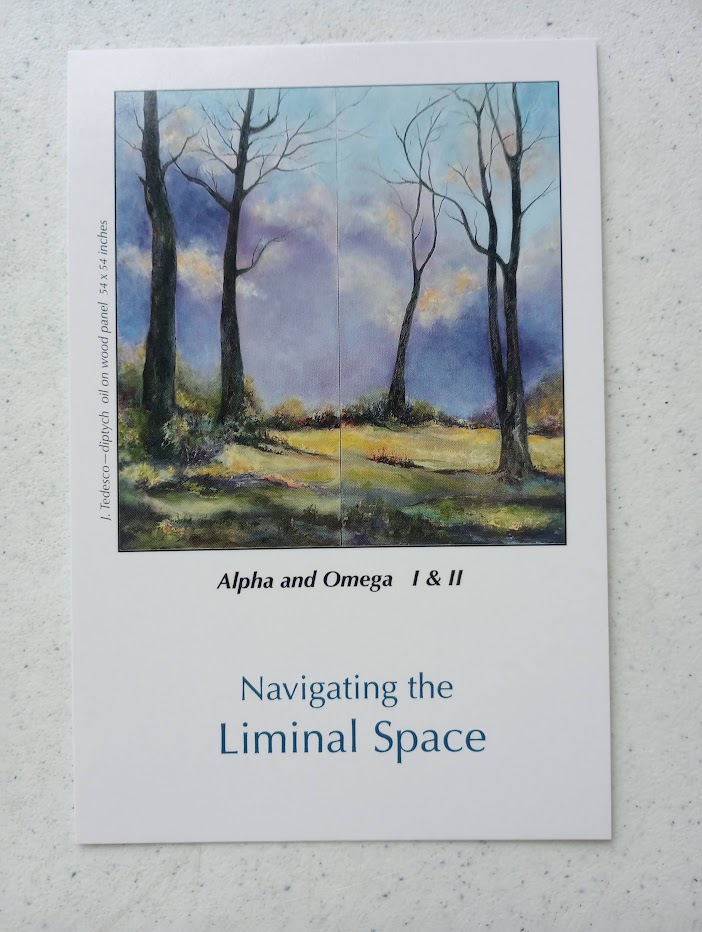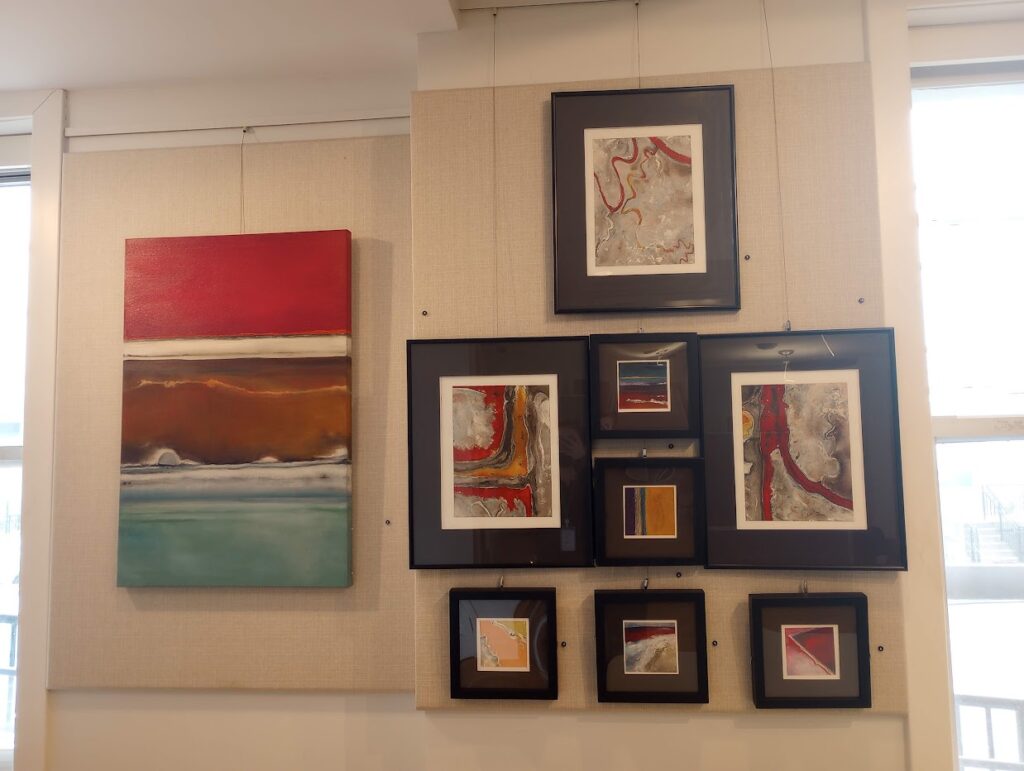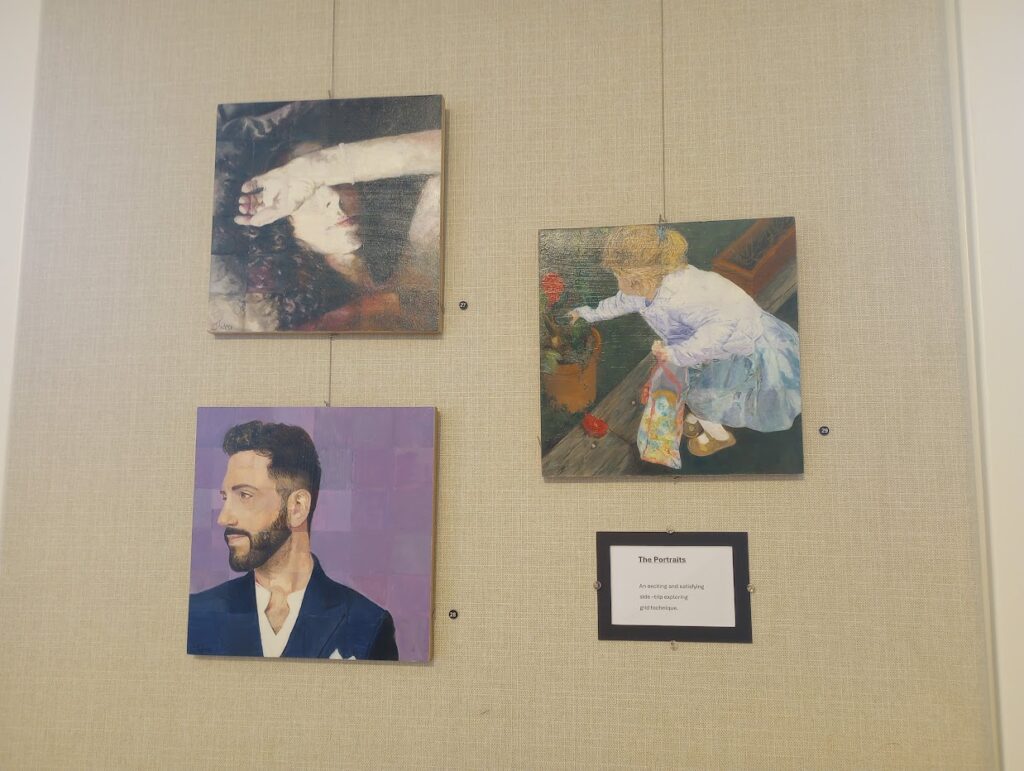April 2024 Art Exhibit
Navigating the Liminal Space
A journey in oils on canvas, paper and wood
by J. Tedesco

Artist’s Statement
The more I paint, the more I learn.
I find myself thinking about painting much more than actually sweeping a brush across a flat surface...for me, it is process over product. But when I finally get to the easel,
sometimes magic will happen.
I am, admittedly, still trying to figure things out. I go here and there; I go large, I go small. I bounce around a bit, but the changing skies will always hold a special place in my heart.
There is no final destination…it is truly a journey. This exhibit is my trek across the last nine years.
Please contact me at jotede13@aol.com to arrange a purchase, or just to let me know how my art speaks to you.
Reception: Saturday, April 27 from 2 to 4 PM
View a small preview below, then come in-person to the gallery to see the full exhibit!


All images are subject to copyright.
Attention Artists
The library strongly encourages local artists to apply for exhibit space.
Please download a copy of our exhibition policy and an exhibit application, or call Rosemarie Gatzek, the Library’s Director, at (914) 591-7840. You may view the room floor plan here as well.
If you are interested in having a reception, you will need to contact Rosemarie Gatzek directly to schedule a date and time.
Attention non-profit groups
Our program room is available to non-profit community-based organizations for special programs. Rental fees, security deposits and proof of insurance are required. Read our Program Room Policy by clicking here. Download an application for use of the Program Room here. For more information call Rosemarie Gatzek, the Library’s Director, at (914) 591-7840.


